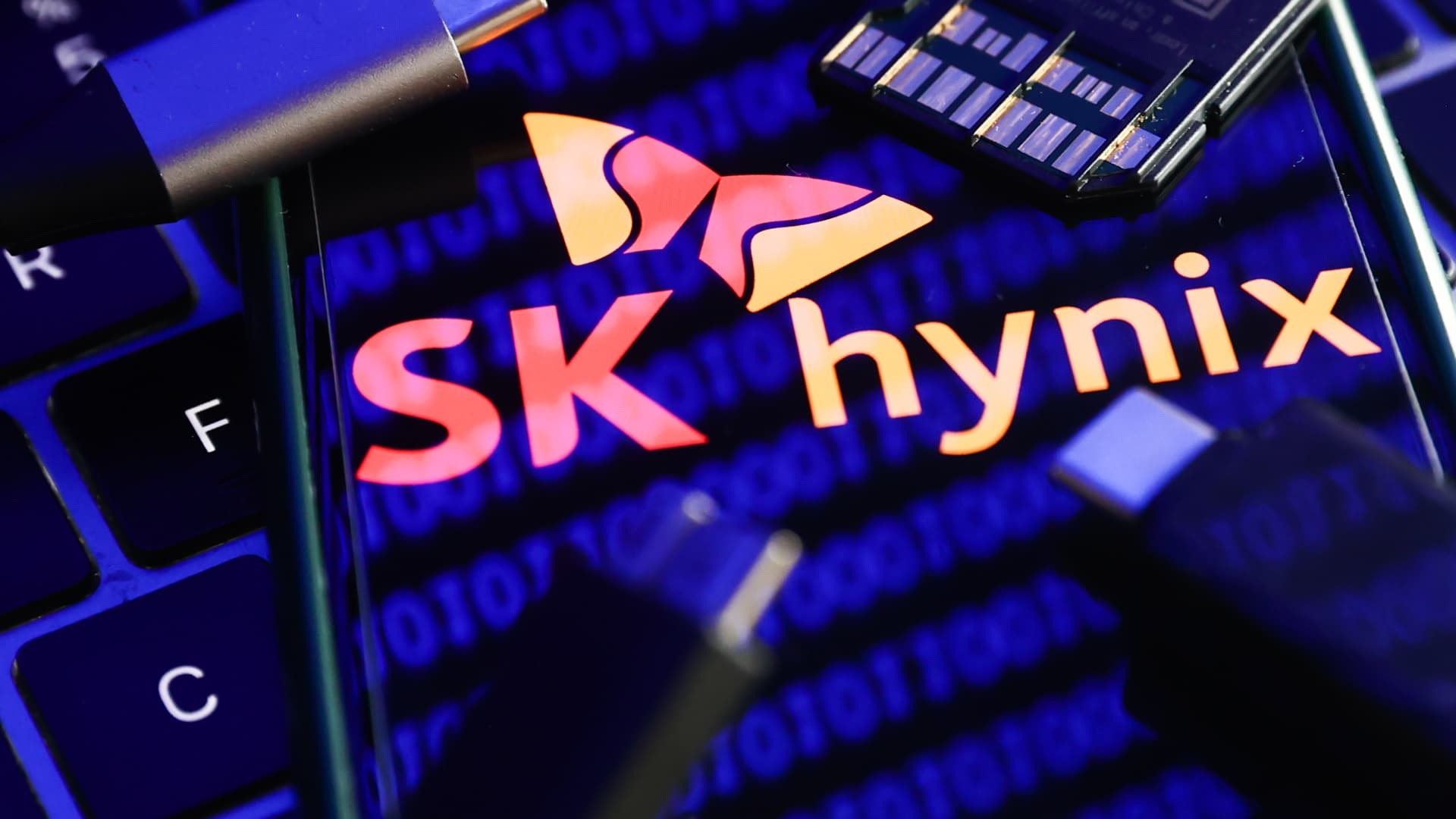SK Hynix logo displayed on a phone screen as seen in this illustration photo taken in Krakow, Poland on January 30, 2023.
Jakub Porzycki | Nurphoto | Getty Images
South Korea’s SK Hynix said a boom in artificial intelligence will drive chip profits after posting a sharply narrower third quarter loss than it did in the previous quarter.
Strong demand for advanced chips used in AI helped ease the impact of a prolonged slowdown in demand for commodity chips used in smartphones and computers in the three months to the end of September, the world’s second-biggest memory chipmaker said on Thursday.
SK Hynix said its business selling DRAM chips, used in tech devices, had returned to profit in the third quarter, after reporting losses in the first two quarters of this year.
“The DRAM business … is expected to continue to improve along with the generative AI boom. The NAND flash business, which continues to suffer losses, is also showing signs of improvement,” the chipmaker said in a statement.
SK Hynix said it swung to a 1.8 trillion won, or $1.33 billion, third-quarter operating loss from a profit of 1.7 trillion won a year earlier.
It was its fourth consecutive quarterly loss, but improved from a trough of a 3.4 trillion won loss in the first quarter and a 2.9 trillion won loss in the second quarter.
The result slightly missed a 1.7 trillion won operating loss estimated by 20 analysts’ views compiled by LSEG SmartEstimate, which is weighted toward analysts who are more consistently accurate. Revenue fell 18% year-on-year to 9.1 trillion won.

Samsung Electronics will report full third-quarter results on Oct 31, when the No.1 memory chipmaker is also expected to flag improving industry conditions.
The memory chip industry has weathered a decades-low downturn since last year. Analysts said SK Hynix’s business for NAND flash chips, used in data storage, probably recorded about 2 trillion won in third quarter losses due to dried-up demand.
However, there is solid appetite for SK Hynix’s advanced DRAM chips such as high bandwidth memory, or HBM, chips used in the fast-growing field of generative AI.
SK Hynix was ahead of rivals in developing HBM3 chips and securing AI-chip leader Nvidia as a client.
The effect of memory chipmakers’ production cuts are starting to show as clients are placing new orders and chip prices are starting to stabilize, the company said.
Some analysts expect SK Hynix to swing to a profit in the current quarter, as manufacturers of smartphones and PCs grappling with weak consumer demand have gradually reduced their chip inventories to levels low enough to resume purchases.
Underscoring improving demand, some memory chip prices have started rebounding near the end of the third quarter.

